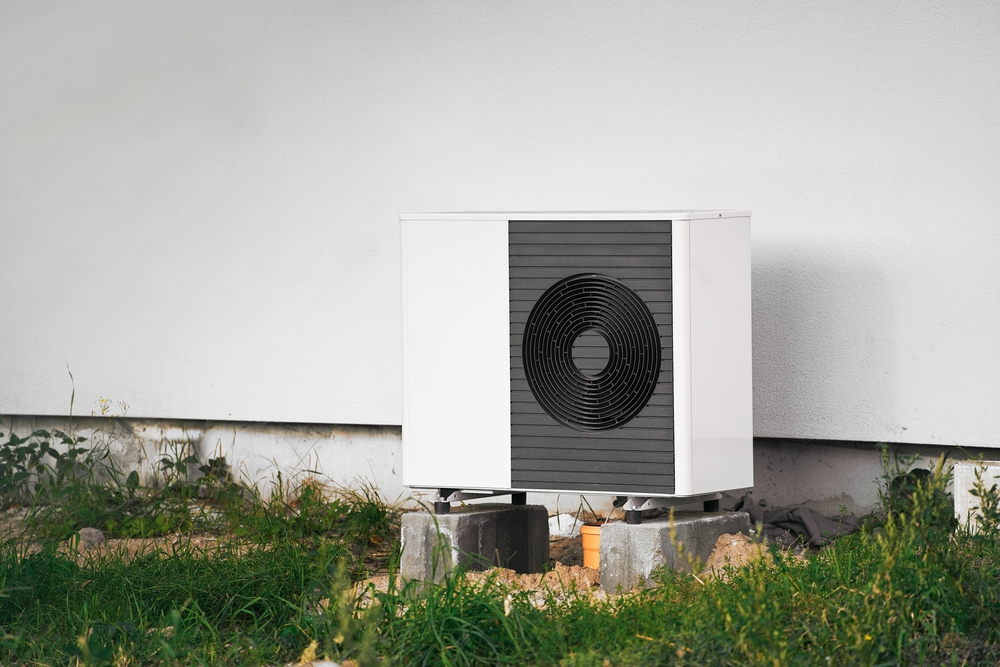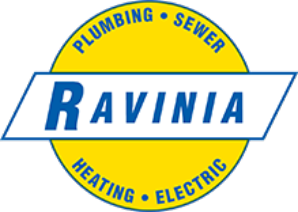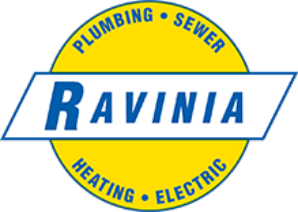
As we enter the cold weather months, it’s important to make sure that our heating systems are in top shape. One common issue that homeowners may face is a heat pump turning on and off frequently. This can be frustrating, while also increasing your energy bill and potentially causing wear and tear to air source heat pumps. In this blog post, Ravinia Plumbing, Sewer, Heating & Electric will explore some potential causes for a heat pump turning on and off as well as solutions for fixing them.
How Do Heat Pumps Work?
First, let’s review how a heat pump operates. Essentially, a heat pump’s heating works by heat transfer – it doesn’t create heat. This means it moves heat energy between the inside and outside of your home. In the winter, its cooling mode extracts heat from the cold air outdoors and uses it to warm the air inside. In hot weather, the heat pump heat transfer process works in reverse, removing heat from inside and transferring it outside to cool your home just like an air conditioning unit.
Causes of a Heat Pump Turning On and Off
Now that we have a basic understanding of how a heat pump functions, let’s examine some of the causes for frequent cycling on and off. This issue is also known as short cycling, and it’s a problem you want to address right away before it leads to trouble heating your home and damage to your heat pump.
Thermostat Issues
The thermostat and heat pump work together to heat your home, as the thermostat tells the heat pump when to cycle on and off. If you have a faulty thermostat, due to faulty wiring or a bad sensor, it could be sending incorrect signals to the heat pump due to it taking a misleading temperature scan, causing it to cycle repeatedly and have trouble heating the home, failing to reach a comfortable temperature. Additionally, if the thermostat is located in an area that is exposed to drafts, direct sunlight, or other sources of temperature fluctuations, it may be sensing incorrect temperatures and triggering the heat pump to turn on and off more frequently than necessary.
Solution: Check that your thermostat is properly calibrated and isn’t placed in a location that could be causing misreads of the temperature. If you’re still experiencing issues with thermostat error, it may be time to replace your thermostat. A new thermostat will be calibrated properly for your set temperature, ensuring your thermostat and heat pump always provide your desired temperature indoors.
Dirty Air Filters
Air filters are responsible for keeping the air circulating in your home clean and free of debris. However, if the air filter becomes clogged with dirt, dust, and other particles, this can restrict airflow and cause your heat pump to turn on and off more frequently as it tries to compensate. An air filter clog not only causes undue wear and tear on your heating system, but also decreases its energy efficiency, which in turn raises energy cost.
Solution: Check your air filter regularly and replace it as needed (1” and 2” filters need to be changed every 1-2 months; 4” thick filters should be changed every 6 months). This will not only help prevent your heat pump from cycling on and off frequently but replacing dirty air filters can also improve the overall air quality in your home.
Refrigerant Leaks
Refrigerant is the substance that flows through the coils of your heat pump, transferring heat energy from one place to another. If there is a refrigerant leak in the system, this can cause a decrease in refrigerant levels, which leads to your heat pump short cycling, or turning on and off frequently. A refrigerant leak can also cause your heat pump to struggle to maintain the target temperature in your home, leading to further wear and tear on the system and potentially higher energy bills.
Solution: If you suspect that your heat pump is short cycling due to a refrigerant leak, contacting a professional HVAC technician for repairs is the best solution. They can locate the refrigerant leak and repair it, as well as refill your heating system with the appropriate level of refrigerant.
Dirty Coils
The outdoor unit of your heat pump contains coils that help transfer heat to the home’s indoor air. However, if these coils become dirty or clogged, it restricts airflow and causes your system to cycle on and off frequently as it tries to compensate. Reduced airflow can also lead to ice forming on the coils – ice buildup can also cause a heat pump turning on and off frequently.
Solution: Having your heat pump serviced and cleaned twice each year can help prevent future clogs caused by the buildup of dirt and debris on the coils. This can be as simple as rinsing the coils off with a hose or contacting an HVAC technician for more thorough cleaning as needed.
Improper Heat Pump Sizing
If your heat pump is too large or too small for your home, this can cause it to short cycle as it struggles to efficiently heat or cool the space. An undersized or oversized heat pump can cause short cycling by failing to maintain a consistent temperature in a building due to insufficient heating or completing heating cycles too fast. This can lead to the system turning on and off more frequently than necessary, which not only drives up your energy bill but also places unnecessary wear and tear on the equipment.
Solution: Contact an HVAC professional to have a trained technician perform the proper calculations to assess your home’s heating and cooling needs and recommend the appropriate sized system for your space.
Professional Repair for Heat Pumps
If your heat pump short cycles, it’s likely due to one of the causes listed above. By addressing these issues and performing necessary maintenance, you can help your system run efficiently, reduce wear and tear, and keep your home comfortable all winter long. Contact Ravinia Plumbing for heat pump repair today.




